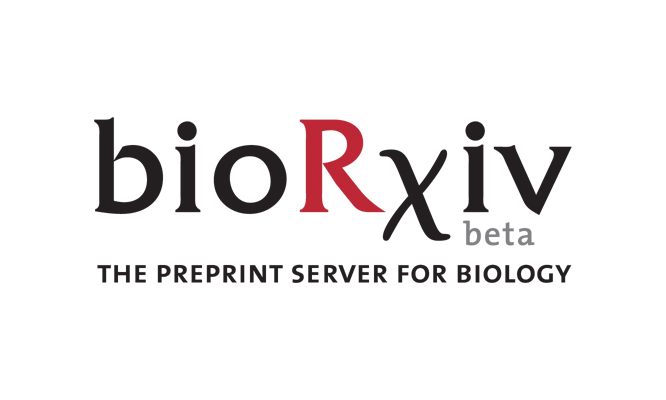Today we announced good news for our authors who use the bioRxiv preprint server! In partnership with Cold Spring Harbor Laboratory, the GSA journals GENETICS and G3 are rolling out a new feature that allows authors to submit their manuscript for peer review at one of our journals and, if they choose, simultaneously post it as a preprint on bioRxiv. The bioRxiv preprint will be immediately available to the public, citable via a Digital Object Identifier (DOI), and open for reader comments and feedback.
bioRxiv was launched by Cold Spring Harbor Laboratory a year ago today. It is intended to serve as the life science equivalent of the arXiv preprint repository that physicists have relied upon as a complement to the peer review system for decades. You can read about the success of the server’s first year at ScienceInsider, in an interview with John Inglis and Richard Sever from CSHL.
In response to feedback from authors, the GSA journals updated their preprint policy in 2012 to formally allow posting on preprint servers before publication. The new submission feature streamlines the process using a simple, optional transfer via Bench>Press, HighWire’s electronic manuscript submission and peer-review workflow system.
Stephen Wright (University of Toronto), who is Senior Editor for Population and Evolutionary Genetics at G3 and Associate Editor at GENETICS, was enthusiastic about the partnership:
“With preprint deposits, scientists can communicate their findings earlier, whether they seek feedback, collaboration, or to spread the news of their latest work. Hearing about and receiving feedback on the very latest work prior to publication was historically the domain only of scientific meetings, but preprint archives now allow for continual rapid dissemination and feedback. In the end, when combined with formal peer-review and peer-editing, the reach, findings, and impact of the science ends up even stronger.”
Read the press release below for more details. We expect to implement the new submission feature by the end of the month. Stay tuned!
Update: The bioRxiv feature is now live at the GSA journals’ submission sites (http://submit.genetics.org/ and http://submit.g3journal.org/). Before you upload the manuscript files, the submission system will give you the option to automatically post the manuscript PDF on bioRxiv.
PRESS RELEASE
Genetics Society of America first to partner with Cold Spring Harbor Laboratory Press to assist authors in depositing preprints into bioRxiv
BETHESDA, MD – The Genetics Society of America (GSA) announced today that it is partnering with Cold Spring Harbor Laboratory (CSHL) to assist authors in submitting unpublished manuscripts to bioRxiv, a fast-growing preprint server for the life sciences.
GENETICS and G3: Genes|Genomes|Genetics, the journals of the GSA, will this month enable authors to submit a manuscript for peer review to either journal and, simultaneously, to post the manuscript as a preprint on bioRxiv. The bioRxiv preprint will be immediately available to the public, citable via a Digital Object Identifier (DOI), and open for reader comments and feedback.
This simple, optional transfer is available through Bench>Press, HighWire’s electronic manuscript submission and peer-review workflow system. Using a streamlined Bench>Press workflow developed by HighWire for bioRxiv, author manuscripts are immediately available to the scientific community for feedback as they are submitted for peer review. For those manuscripts that go on to be accepted by either GSA journal, bioRxiv will feature an updated link to the final version of the article, which incorporates revisions from the formal peer-review and peer-editing process.
“With preprint deposits, scientists can communicate their findings earlier, whether they seek feedback, collaboration, or to spread the news of their latest work,” says Stephen I. Wright, PhD, Senior Editor for Population and Evolutionary Genetics at G3, GENETICS Associate Editor, and Associate Professor in the Department of Ecology and Evolutionary Biology at the University of Toronto. “Hearing about and receiving feedback on the very latest work prior to publication was historically the domain only of scientific meetings, but preprint archives now allow for continual rapid dissemination and feedback. In the end, when combined with formal peer-review and peer-editing, the reach, findings, and impact of the science ends up even stronger.”
Welcoming the announcement, John R. Inglis, PhD, Executive Director and Publisher at Cold Spring Harbor Laboratory says: “In just a year, bioRxiv has become, for many scientists working in genetics and genomics, a significant source of new information in preprint form. So we are delighted that GENETICS and G3, the journals of the forward-looking Genetics Society of America, are the first to partner with bioRxiv to give authors the chance to rapidly share their findings and readers an early opportunity to critically evaluate new observations in their field.”
“We’re thrilled to participate in this initiative, in particular because many of our authors already use bioRxiv, especially in population and evolutionary genetics” says Tracey DePellegrin, Executive Editor for the GSA Journals. “It’s about listening to members of the research community and figuring out ways to help disseminate and discuss their work. Authors who choose to deposit their work in bioRxiv will enjoy greater visibility and feedback and, if the submitted manuscript progresses to peer-review, the benefits of thoughtful, thorough review and peer-editing. This partnership reflects our commitment to fostering open conversations about science, while at the same time, underscoring the importance of academic editors as peers. Our practicing scientist editors synthesize peer-reviews into a letter that clearly lets authors know what is expected in a revised manuscript. Manuscript deposits in bioRxiv allow early and open discussions on the work, including conversations about the evolution of an initial manuscript draft into a published research article.”













